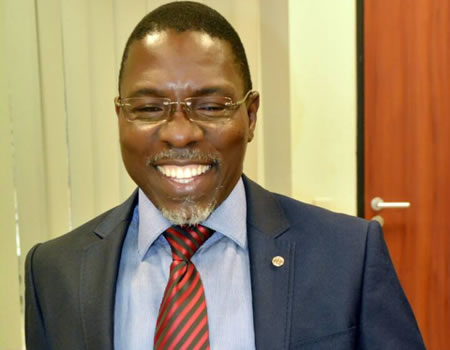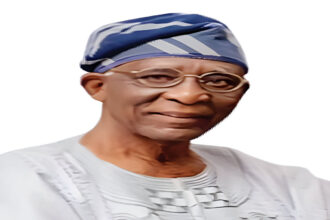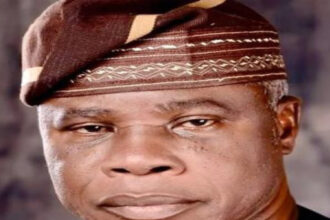
The relevance of the National Assembly cannot be over-emphasised. Apart from the fact that we operate a presidential system where we have three arms of government, the Nigerian National Assembly has been vocal and frontal about national issues. It is not uncommon for the House to sit on Sundays, if the need arises to find solution to urgent national issues. Our mandate as lawmakers is to put the interest of the people first at all times. Apart from performing the constitutional role as a check for the executive so that the interest of Nigerians who voted for us are protected at all times, lawmakers are the ambassadors of the people in Abuja. Lawmakers are the real representatives of the people. How many villages does President Muhammed Buhari know? How many villages has the Minister for Works visited? How does he know that my community requires water, housing or road network? With the assistance and collaboration of the National Assembly members, we have been able to facilitate projects that ordinarily would not have seen the light of day. We have also fought for the cause of our constituents by presenting their petitions on the floor of the House. All the lawmakers are also involved in various forms of empowerment programs in their constituencies which play complementary roles to Federal Government initiatives.
Since 1999, when this democratic rule began, the Ijebu Federal Constituency where you come from has not voted same person for two terms, but here you are serving a second term at the House of Representatives. What is the magic?
Let me start by saying there is no magic. Politics is about the people. It is rooted in relationships, therefore, your success depends largely on how well you bond and connect with your people. Before coming into politics, I lived in my constituency among my people with my late paternal grandmother from whom I acquired native wisdom that cannot be taught in any university in the world. This helped my politics a great deal. Besides, having stayed among my people for that long, I knew the needs of my constituents while seeking for their mandate to represent them at the House of Representatives. I knew what they yearn for, I understood their plights and I saw their aspirations. It wasn’t difficult when I eventually got in to do what they require of me.
When I was campaigning, I made two things clear: one was to concentrate on human capital development through empowerment. The second was to use my position to facilitate community infrastructural development to my constituency. Upon my victory at the polls, I made it clear to everybody that I am not just a party representative rather I am representing every citizen of Ijebu Central Federal Constituency, regardless of political affiliations or religious background. This is why my empowerment programmes cuts across party affiliations. All the people of Ijebu Central Federal Constituency are included whether in PDP, Labour Party, SDP, APC and even those who do not belong to any political party. Empowerment is for all of my people and not only for APC members. As a result of this, the people were surprised during my first term in office when they saw what is not typical among politicians. They reasoned and responded by giving me a second term mandate in the House of Representatives.
I have always believed that you can’t make laws for people that are angry and hungry. Yes, it is good to build schools, hospitals and roads in your constituency, but in addition to these, the people needed to be empowered. There must be food on their tables and there must be employment. When all these are achieved, one can now say, as a politician, that one is making a difference. I believe strongly that if you want to govern, you must have a balance of the two so the people are happy. When the people are empowered and happy, whatever infrastructural development that is provided will be appreciated and the people will have a sense of ownership and a duty to maintain it.
But despite this, considering the insatiable nature of man, it may be tough satisfying everybody. What do you do in such a situation?
Yes, you cannot satisfy everybody or do everything to please everyone. My strategy is to cover as many areas as possible, while keeping my ears to the ground to listen to feedbacks and complaints. Let me be the first to admit to you that I didn’t achieve all I set out to do during my first term in office. But as soon as I got the second mandate of my people, I started from where I stopped. It is a continuous engagement with the people for the trust imposed on me to serve them.
From the way you spoke, if your people beckon on you again, will you oblige and why the House of Representatives?
Two things are important and you have mentioned one: my people. If they say I should represent them again, of course, I will. The second thing is that I believe I have not done enough. Some are saying with my achievements so far, I should go to the Senate. No, I am not interested in senatorial ticket. I still intend to remain a congressman. My constituency is my strength. My people are what keep me going. I am close to the grass root as a member of the House of Representatives. If you look at Ogun State, after Honourable Dimeji Bankole’s stint as Speaker of House of Representatives, there has not been anybody from Ogun State in the leadership position of the National Assembly. Why? It is because of inconsistency. We change our representatives always. There is need for consistency of purpose and mandate. This is how to grow in politics. Above all, like I have stated earlier, I have not done enough. I believe I can still do more for my constituents as a member of the House of Representatives.
You are in the National Assembly on the platform of the All Progressives Congress (APC). Do you see the party still pulling the strings in the next election in Ogun State?
A lot of people have been saying all sorts, but if you come to Ogun State, you will see that the infrastructural development in the state is second to none. I am not saying previous administrations did not perform. Nevertheless, Governor Ibikunle Amosun has taken infrastructural development of Ogun State to a greater height. The state, under his leadership, has become the industrial hub of the South West. The number of industries in Ogun State has increased exponentially and this has brought economic development to the state. With all these laudable achievements by the APC-led government of Governor Amosun, coupled with various empowerment programmes and support from other elected legislative members, both at the state and the federal levels, I can tell you confidently that APC will continue to be in power in Ogun State, come 2019.
As a chartered accountant and lecturer who was comfortably engaged, before showing interest in politics, why did you go into partisan politics?
I went into politics because I believe we cannot all continue to be armchair critics, but must be ready to get our hands dirty, after all, politics, they say, is a dirty game and play the game. A lot of us, even when we have potentials, just sit down and criticise. We call politicians armed robbers and rogues, but these people are the ones deciding our fate and those of our unborn children. So, if we continue to leave our activities in the hands of those we call rogues, who administer and govern based on the level of their understanding, what do we expect? All of us who feel we are not concerned and are looking the other way will be affected at the end of the day. Now everybody is complaining of recession in Nigeria, is it affecting politicians alone? No, we are all in it together.
When I joined politics, I realised that what most people expect is for politicians to come and give them money. I told them ‘I won’t give you money, but I would rather teach you how to fish instead of giving you fish’. This is why my legacy in human development through empowerment is second to none in the whole of Ogun State. Whoever is going to take over from me whenever I decide to retire from active politics will not go below the set standard. We cannot continue to be giving fish to our constituents; we must teach them how to find their food. What I am saying is that we should empower them to the extent that they can live with or without hand-outs from politicians.







